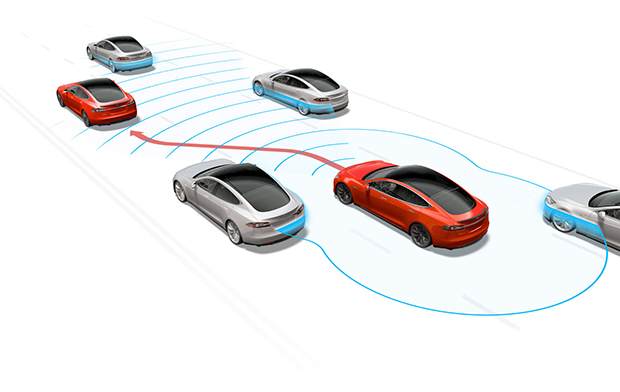Elon Musk Claims Tesla Autopilot Is Nearly ‘Twice As Good’ As Error-Prone Human Drivers

With that in mind, Tesla CEO Elon Musk has been talking up the virtues of Autopilot, and its superiority to human drivers in dealing with potential collisions on our highways. “The probability of having an accident is 50% lower if you have Autopilot on,” said Musk while speaking last week in Norway. “Even with our first version. So we can see basically what’s the average number of kilometers to an accident – accident defined by airbag deployment. Even with this early version, it’s almost twice as good as a person.”

That’s a pretty bold claim to make regarding the superiority of the Autopilot’s computer brain in comparison to the mush inside our craniums. It’d be interesting to know exactly how Musk is arriving at these figures and if he could make the same claims about Autopilot when used in snowy, rainy or even low-visibility situations.
But Musk didn’t stop there; he went on to add that a future, second generation of Autopilot would bring fully-autonomous driving capabilities and would be even safer. In fact, it would need to be in order to satisfy not only the millions of drivers that will be sharing roads with these future Teslas on a daily basis, but also U.S. regulators that will want to make sure that there is little room for error in this computer systems.
“I think it’s going to be important in term of satisfying regulators and the public to show statistically with a large amount of data – with billions of kilometers of driving – to say that the safety level is definitively better, by a meaningful margin, if it’s autonomous versus non-autonomous,” Musk added.

It should be noted that Google has racked up over a million miles of fully autonomous driving with its fleet of self-driving cars. In all those miles of travel, Google vehicles have been involved in a number of accidents, but Google has only been cited as “at fault” in one case. However, Google is limited in what states and cities that it can test its self-driving vehicles. Tesla will be facing similar roadblocks as it fully fleshes out Autopilot.
While Tesla Autopilot might be a credible middle ground between human drivers and the fully autonomous capabilities of Google’s autonomous fleet, it still has a long way to go before bringing that technology to the buying public. But when it’s ready, we’ll be among the first in line eager to test it out.

